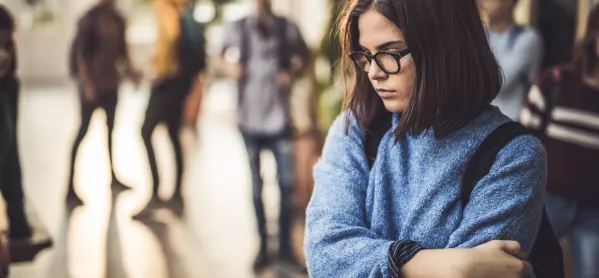- Home
- Coronavirus: ‘Just like that, I had left school’
Coronavirus: ‘Just like that, I had left school’

As I write, I was supposed to be in school today. I was supposed to be finishing off the last of my coursework and soaking up the last golden moments of high school before my friends and I leave for good and go our separate ways.
On Monday 16 March I began to realise this was not on the cards for me. As large gatherings were cancelled, so were our assemblies. As vulnerable people were urged to protect themselves, several of my teachers, peers and friends started self-isolating.
By Wednesday, before it had even been announced that schools were closing, I had no teachers left to take my classes for that day. Every child dreams of school closures, but this? This is just a nightmare.
Coronavirus: Educators’ extraordinary responses
Coronavirus and holidays: School work ‘must stop over spring break’
Coronavirus and distance learning: Taking small steps into online learning
Coronavirus and supply teaching: Supply teachers suffering ‘huge anxiety’
For weeks already, one of my teachers had arranged his desks so that he would be two metres away from students at all times. I remember him warning us that there had probably been a case of Covid-19 in the school already. That sent shock waves around the classroom. I don’t know why we were so surprised. In a school of 1200 odd? This was bound to happen. Any one of us might have caught it already.
By Thursday, anybody with projects to finish began locking themselves away in drama studios, art classrooms or computer rooms, desperately trying to get as much done as they could. We signed cover slips for our portfolios on the off chance that we could send them off even after the shutdown. Now that we know that the SQA (Scottish Qualifications Authority) won’t accept and grade them anyway, it does feel like this was precious time wasted.
I spent lunchtime crying, thinking about when I’d see my friends again, how many of them or their loved ones would end up sick before I did, and how we had almost no time for a proper goodbye. We watched [education secretary and deputy first minister] John Swinney announcing that exams were cancelled live on BBC news, huddled round an iPad screen.
Afterwards, while the National 5 students cheered from their classrooms, there was a sombre scene as anyone with university conditions to meet asked each other: what now? How can we be sure we get the grades we need? Is this an argument in favour of grades weighted more in favour of assignments over exams? How is this even going to work?
On my last day, the English teacher I have known since first year gave us a goodbye speech about how much we’d all grown, and how proud of us she was. All the leavers signed each other’s shirts and gave heartfelt hugs, promising to stay touch, and trying to squeeze in all the things we had wanted to say to each other. We were running out of time. After break, everybody in my year lined up to cheer and clap for all the teachers that remained as they went back to their classrooms, thanking them for doing everything they can for us. We had one last picnic lunch after school, trying to make the most of each other’s company for one last time. Then it was all over. Just like that, I had left school.
It’s been over a week now, and I’m still getting used to being in the house with my family, all day, every day. Some small selfish part of me is frustrated that I’ve had to leave school without a proper goodbye: no prom, no leaver’s ceremony, no official last day. But this is obviously a situation with far more serious consequences than not getting to dress up in a pretty gown.
I’m impressed by how quickly young people have changed their habits and adjusted, not going into work, keeping in touch online, and most importantly staying at home. I hope we can collectively carry this proactive attitude forward and that this can serve as the proof we need that we can make a difference - even if our final year of school was nothing like we’d imagined.
Harriet Sweatman is an S6 school student in Scotland
Keep reading for just £1 per month
You've reached your limit of free articles this month. Subscribe for £1 per month for three months and get:
- Unlimited access to all Tes magazine content
- Exclusive subscriber-only stories
- Award-winning email newsletters

